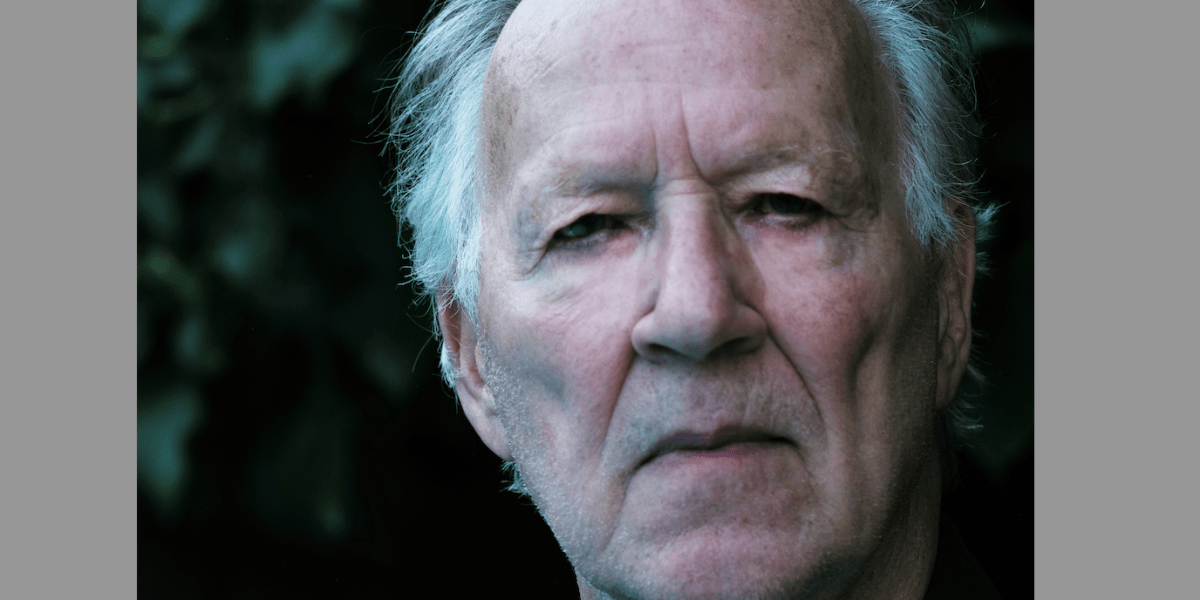Werner Herzog, the legendary filmmaker known for his probing documentaries and arthouse cinema, delves into the complexities of truth, technology, and human nature in his new book, ‘The Future of Truth.’ In a wide-ranging interview, Herzog shares his unique perspectives on artificial intelligence, the dangers facing Gen Z, and his affection for Los Angeles, a city he sees as both incredibly rich and phenomenally stupid. This article explores Herzog’s insights into these topics, drawing from his conversation and the themes presented in his book.
Herzog’s exploration of truth isn’t just a philosophical exercise; it’s a reflection on the very essence of art, poetry, and cinema. He questions whether objective truth even exists, suggesting that sometimes the pursuit of a dream is more valuable than its realization. From his technophobia to his defense of mainstream Hollywood, Herzog’s views challenge conventional wisdom and offer a provocative look at the world we inhabit. Here’s a breakdown of the key topics he touched on:
- Los Angeles: A city of cultural substance and phenomenal stupidities.
- AI and Fake News: The blending of artificial intelligence and misinformation.
- Gen Z: Dangers of over-reliance on technology.
- The Future of Truth: A call to vigilance in a post-truth age.
The ‘Phenomenal Stupidities’ of Los Angeles
Herzog describes Los Angeles as ‘a city with the most substance, most cultural substance, in the United States, maybe even in the world.’ He acknowledges the superficial glamour often associated with Hollywood but emphasizes the presence of artists, writers, and inventors. He appreciates the duality of LA, where artistic richness coexists with ‘abominations like aerobic studios and yoga classes for five-year-olds.’
The artistic richness of LA with the phenomenal stupidities of LA, it happens at the same time. You have to accept it.
Herzog believes this duality is inherent to human nature, reflecting the often-conflicting relationship between what we feel to be true and what we know to be literally true. His affection extends beyond cosmopolitan centers to America’s heartland, where he sees good people who are undereducated, underpaid, and disadvantaged. He expresses outrage at the dismissive attitude toward these ‘flyover states.’ This blend of appreciation for both high art and the common person shapes Herzog’s worldview and informs his concerns about the future.
The ‘Meaningless Twaddle’ of AI and the Ancient Origins of Fake News
Herzog connects artificial intelligence and fake news, arguing that they blend together to create the post-truth age we live in. He points to an AI-generated conversation between himself and a ‘Slovenian philosopher’ as an example of this phenomenon. Though their voices are accurately mocked up, the conversation lacks soul and meaning.
Our voices are mocked up very accurately, but our conversation is meaningless twaddle … Our sentences are grammatically correct and have the right vocabulary, but our dialogue is soulless, is dead.
Herzog doesn’t use AI and doesn’t even own a cell phone. He says he finds new ideas on foot, engaging with the real world. While AI might be new, Herzog reminds that fake news is not, citing examples from ancient Egypt and Rome, including the fake Neros who appeared after the emperor’s suicide, gaining followers and banquets. This historical perspective reinforces Herzog’s call for vigilance in the search for truth.
Dangers Awaiting Gen Z
Herzog expresses concern for younger generations growing up in a world dominated by screens and apps. He warns that those who depend too much on social media and cell phones will struggle in their lives. Their experience of reality becomes secondary, filtered through applications.
He recounts an acquaintance who couldn’t navigate five blocks in LA without Google Maps, having never learned the streets. He worries about how much we want to delegate to technology, asking, ‘Do you want to delegate your dreams to artificial intelligence?’ The dependence on technology, in Herzog’s view, distances people from the real, basic, barefoot reality.
‘The Future of Truth’
In his book, ‘The Future of Truth,’ Herzog tackles current events like artificial intelligence, fake news, and technology. In 11 short chapters, he discusses the difference between facts, truth, and trust in the 21st century, linking them back to examples throughout world history.
The book addresses the fake news that ran rampant throughout ancient Rome, and the bizarre “family romance” business in Japan where firms supply actors who stand in for missing friends or family members on a temporary basis.
Herzog believes that history’s parade of lies only further supports his need for continual vigilance, and his book’s final chapter is concise: “Truth has no future, but truth has no past either. But we will not, must not, cannot, give up the search for it.”
Key Takeaways and Final Thoughts
Werner Herzog’s insights offer a thought-provoking perspective on the challenges and opportunities of our time. He reminds us to question the nature of truth, to be wary of technological dependence, and to appreciate the complexities of human nature. His affection for Los Angeles, with its blend of cultural richness and phenomenal stupidities, serves as a microcosm of the world we inhabit.
Herzog’s call for vigilance in the search for truth resonates deeply in an age of misinformation and artificial intelligence. By engaging with the real world and questioning the narratives presented to us, we can strive to maintain our connection to reality and avoid delegating our dreams to technology.

Leave a Reply